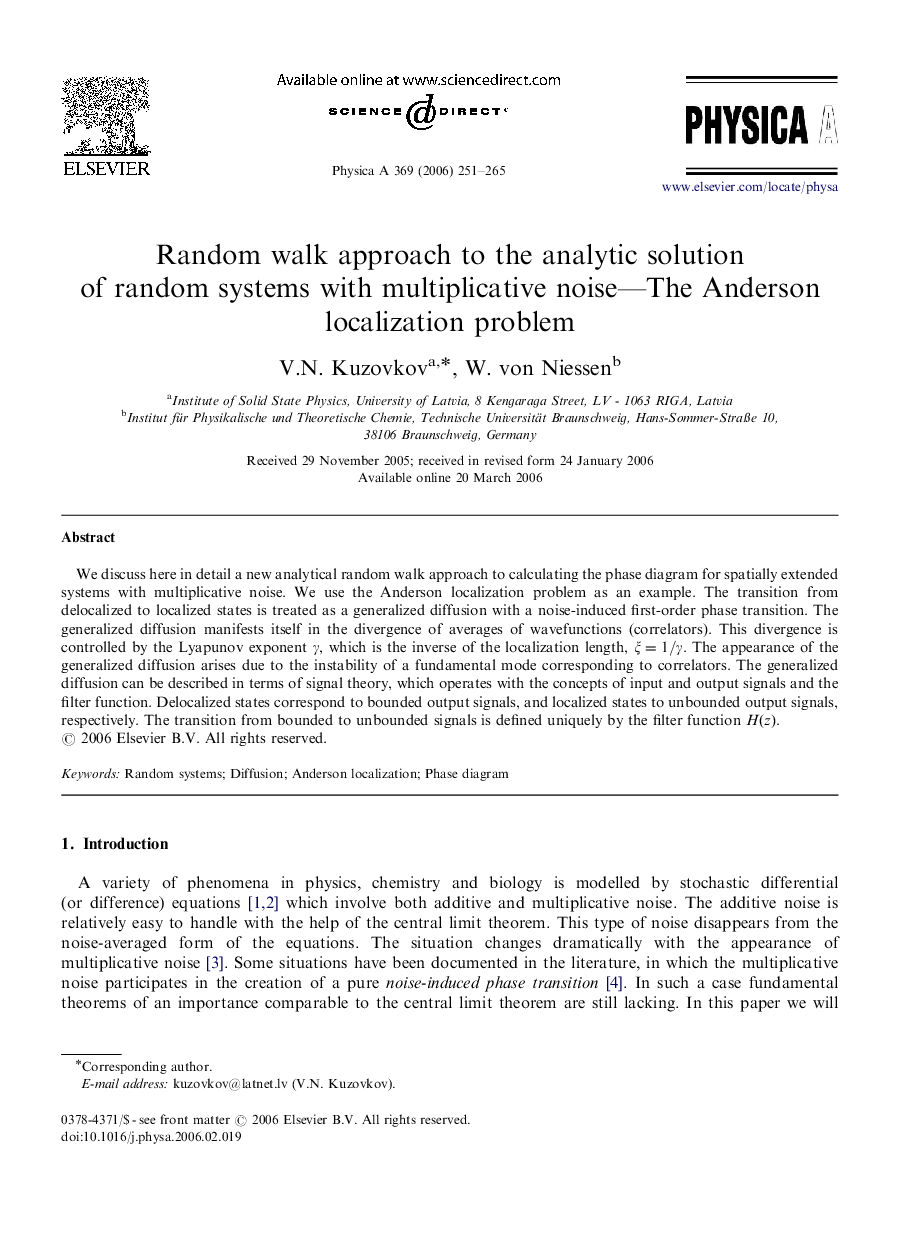| Article ID | Journal | Published Year | Pages | File Type |
|---|---|---|---|---|
| 979713 | Physica A: Statistical Mechanics and its Applications | 2006 | 15 Pages |
Abstract
We discuss here in detail a new analytical random walk approach to calculating the phase diagram for spatially extended systems with multiplicative noise. We use the Anderson localization problem as an example. The transition from delocalized to localized states is treated as a generalized diffusion with a noise-induced first-order phase transition. The generalized diffusion manifests itself in the divergence of averages of wavefunctions (correlators). This divergence is controlled by the Lyapunov exponent γ, which is the inverse of the localization length, ξ=1/γ. The appearance of the generalized diffusion arises due to the instability of a fundamental mode corresponding to correlators. The generalized diffusion can be described in terms of signal theory, which operates with the concepts of input and output signals and the filter function. Delocalized states correspond to bounded output signals, and localized states to unbounded output signals, respectively. The transition from bounded to unbounded signals is defined uniquely by the filter function H(z).
Related Topics
Physical Sciences and Engineering
Mathematics
Mathematical Physics
Authors
V.N. Kuzovkov, W. von Niessen,
